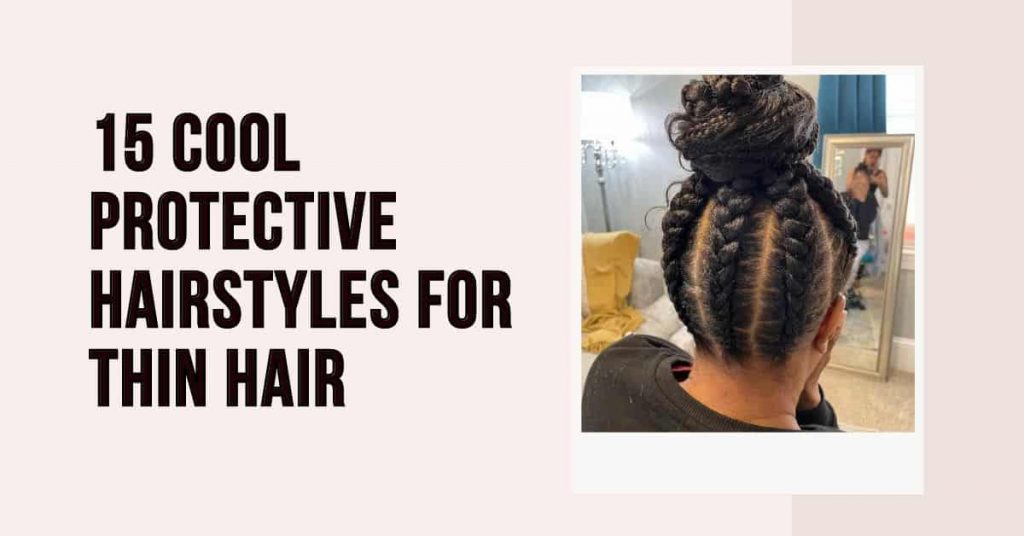How Synthetic Hair Braids Pose A Health Threat To Black Women

Table of Contents
Millions of Black women embrace synthetic hair braids for their versatility, style, and protection. However, the quest for beautiful, long-lasting braids can sometimes come at a cost. While synthetic hair braids offer a convenient and fashionable protective style, they also pose several potential health risks that every woman should be aware of. This article will explore the key health concerns associated with synthetic hair braids and offer advice on minimizing these risks.
Traction Alopecia and Hair Loss from Tight Braiding
Understanding Traction Alopecia: Traction alopecia is a type of hair loss caused by prolonged pulling or tension on the hair follicles. Tightly braided synthetic hair, particularly when worn for extended periods, puts significant stress on the hair roots. This constant pulling can lead to inflammation, weakening of the follicles, and ultimately, hair loss.
- The Mechanism of Traction Alopecia: Continuous tension on the hair follicles disrupts the hair growth cycle, causing miniaturization of the hair shafts and eventually leading to irreversible hair loss.
- Symptoms: Common symptoms include thinning hair, a receding hairline, especially along the hairline and temples, and scalp inflammation or tenderness. You might also experience itching or pain at the braid sites.
- Permanent Hair Loss: If traction alopecia is left untreated, it can result in permanent hair loss in the affected areas. Early detection and intervention are crucial to prevent long-term damage.
- Visuals: [Insert images showing examples of traction alopecia caused by tight braiding]
Scalp Infections and Irritation from Synthetic Hair Braids
Hygiene and Scalp Health: Maintaining impeccable scalp hygiene is paramount when wearing synthetic hair braids. The synthetic fibers create a warm, moist environment that is ideal for the growth of bacteria and fungi.
- Trapping Dirt and Bacteria: Synthetic hair can trap dirt, sweat, oils, and dead skin cells, leading to a buildup that irritates the scalp and increases the risk of infection.
- Symptoms of Scalp Infections: Symptoms of scalp infections can range from mild itching and redness to severe inflammation, pus formation, and even sores.
- Types of Infections: Fungal infections like tinea capitis (ringworm) and bacterial infections are common concerns.
- Recommendations: To prevent scalp infections, thoroughly cleanse your scalp before braiding, use a gentle, sulfate-free shampoo to wash your hair regularly (even with braids in, focusing on the scalp), and ensure your scalp receives adequate airflow.
Chemical Exposure and Allergic Reactions
Harmful Chemicals in Synthetic Hair: Many synthetic hair products contain chemicals that can trigger allergic reactions or cause other health problems.
- Common Chemicals and Their Effects: Some synthetic hair may contain formaldehyde, parabens, and other chemicals that can irritate the scalp, cause allergic contact dermatitis, or even contribute to respiratory problems.
- Allergic Contact Dermatitis: This is a common allergic reaction characterized by itchy, red, inflamed skin. Symptoms can range from mild irritation to severe blistering and weeping sores.
- Choosing Safe Products: Always check the product labels carefully, opt for high-quality synthetic hair that is free of harsh chemicals, and choose hypoallergenic options whenever possible.
Hair Breakage and Damage from Synthetic Hair Braids
The Impact of Tight Braiding and Synthetic Fiber: The weight and texture of synthetic hair, combined with tight braiding, significantly contribute to hair breakage.
- Weakening Hair Follicles: Tight braids put excessive strain on the hair follicles, making them weak and prone to breakage.
- Abrasive Synthetic Fibers: Some synthetic fibers are abrasive and can damage the hair cuticles, leading to split ends, dryness, and breakage.
- Minimizing Breakage: To minimize breakage, opt for looser braiding styles, use gentle detangling techniques, and avoid excessive manipulation of your hair while it's braided. Consider using a leave-in conditioner to protect your hair.
Choosing Safer Alternatives for Protective Styling
Healthier Braiding Techniques and Hair Types: There are ways to enjoy the benefits of protective styling while minimizing the risks to your hair and scalp.
- Looser Braids: Looser braiding techniques significantly reduce tension on the scalp and hair follicles.
- Natural or Human Hair Extensions: Consider using natural or human hair extensions as a healthier alternative to synthetic hair. These options are generally gentler on the hair and scalp.
- Regular Hair Care and Scalp Checks: Regularly check your scalp for any signs of infection or irritation. Maintain a healthy hair care regimen to keep your hair strong and resilient.
Conclusion:
Synthetic hair braids, while a popular and fashionable choice, can pose significant risks to the health of Black women's hair and scalp. Traction alopecia, scalp infections, chemical exposure, and hair breakage are all potential consequences of wearing tightly braided synthetic hair for extended periods. Prioritizing scalp health and choosing safer braiding techniques and hair types are crucial for maintaining healthy, strong hair. Protect your hair and scalp health: Make informed choices about your synthetic hair braids. Seek advice from a dermatologist or trichologist if you experience any concerning symptoms. For more information on hair care and scalp health for Black women, visit [insert links to relevant resources here].

Featured Posts
-
 10 000 Pages Of Robert F Kennedy Assassination Records Released A Comprehensive Overview
May 27, 2025
10 000 Pages Of Robert F Kennedy Assassination Records Released A Comprehensive Overview
May 27, 2025 -
 Abd Politikalari Ve Trump In Yoenetimi Son Haberler Ve Degerlendirmeler
May 27, 2025
Abd Politikalari Ve Trump In Yoenetimi Son Haberler Ve Degerlendirmeler
May 27, 2025 -
 Gaza Doctors Loss Israeli Airstrike Claims Nine Childrens Lives
May 27, 2025
Gaza Doctors Loss Israeli Airstrike Claims Nine Childrens Lives
May 27, 2025 -
 Ice Cubes Last Friday Movie A New Chapter Confirmed
May 27, 2025
Ice Cubes Last Friday Movie A New Chapter Confirmed
May 27, 2025 -
 Decision Du Maire D Aulnay Sous Bois Tolerance Pour Les Commerces Ouverts Le 1er Mai
May 27, 2025
Decision Du Maire D Aulnay Sous Bois Tolerance Pour Les Commerces Ouverts Le 1er Mai
May 27, 2025
